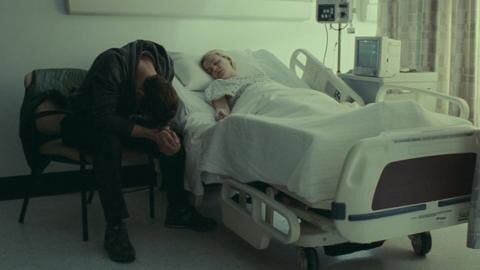It is unfortunately perhaps the only thing that happens to everybody, rich or poor. It is an event that connects us all today, and will certainly still connect us all tomorrow, and yet it's a very taboo subject. You guessed it, we are talking about death.
Discover our latest podcast
We still don't know what happens to our spirit after our last day on Earth, but, in some cases, we can observe some changes in the body, a few days or hours before a person takes their last breath. Here is what you can expect if you are supporting a loved one right until the end.
Discoloration of the skin
When a person is terminally ill, the body may prioritize certain organs and neglect others. Blood circulation, for example, can be altered, and this can have an impact on the person's skin colour.

An increased level of cold
According to the Marie Curie Institute, the extremities of the limbs may feel cold, and the skin may have a blue tinge in certain areas (this is more noticeable in fair-skinned people). In a state of absolute weakness, the dying person may have less appetite, experience fewer periods of wakefulness, and may also feel disoriented, leading to confusion, slurred speech, and so on.
The death rattle
One or two days before a very ill patient draws their last breath, their airways may be clogged with secretions, resulting in noisy breathing. This is known as the 'death rattle' or 'agonic rattle'.
While it may cause concern for loved ones, it is not necessarily disabling for the dying person. According to the MSD Manual:
The death rattle does not cause discomfort for the dying person. This breathing can continue for hours and often means that death will occur in hours or days.
This article has been translated from Gentside FR.
Read more:
⋙ Death rattle: This is what happens to your body 24 hours before you die
⋙ This is how your breathing changes right before you die
⋙ These 3 medications cause the highest deaths in the UK, check whether you have them at home
Sources used:
Health Direct:The process of dying
Institut Marie Curie: Final moments of life
Hospice Foundation of America: Signs of Approaching Death















